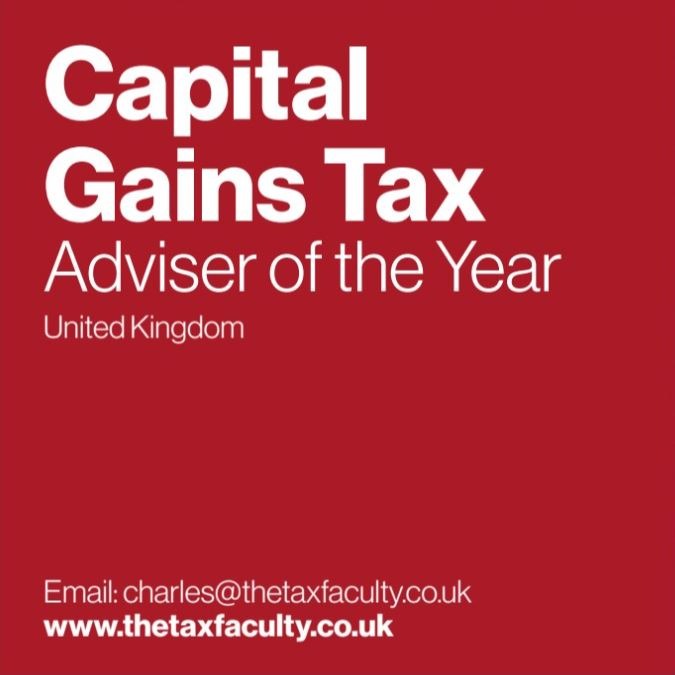TTF Tackles the Money Monster Under Your Bed: What Counts as an 'Asset' for Capital Gains Tax?
The Tax Faculty untangles the confusion surrounding the term "assets" in relation to Capital Gains Tax (CGT). We take a look at a UK taxpayer grappling with inherited high-value items and the fear of the CGT monster under the bed. The response aims to set the record straight—what’s taxable, what’s exempt, and where to turn for trustworthy advice.
HMRCTAX COMPLIANCEASSETSCAPITAL GAINS TAX
The Tax Faculty
5/7/20254 min read


"So here’s the situation: my beloved great-aunt passed away recently and left me a number of high-value items in her will. We’re talking artwork, vintage jewellery, and a couple of antique furniture pieces that have apparently been in the family for generations.
Now, don’t get me wrong—I’m grateful. But here’s the thing: I’m not particularly sentimental, and frankly, these items are just gathering dust. What I do have is a notebook full of passion projects I’ve been meaning to fund and a backpack waiting to be taken on a long-overdue adventure across Europe.
Selling the items seems like the way forward. The problem? Capital Gains Tax. The three scariest words. I keep hearing that CGT might apply to the sale of “assets,” but no one in my circle of friends (and I've asked around) seems to agree on what actually counts as an asset.
Is a diamond ring an asset? What about rare books or collectible figurines? Do I have to report everything? What if I just sell a few pieces for under £6,000? What even counts as disposing of an asset?
I’ve looked online, but it's a bit of a rabbit hole, and frankly, I don’t want to make a costly mistake. I don’t even know where to begin—or whether the HMRC is going to come knocking the minute I list something on eBay.
Help?
What Is an Asset for CGT Purposes? Let’s Demystify It
First off—deep breath. You’re not alone in feeling overwhelmed. Capital Gains Tax (CGT) can seem intimidating, but once you understand what HMRC means by “assets” and the rules around disposal, it gets easier to navigate.
Here’s what you need to know:
HMRC defines an asset as almost anything of value, especially when you’re selling it and making a profit. This includes both physical and non-physical items. When you inherit these assets, there’s no CGT to pay at the time of inheritance, but there may be CGT when you sell (dispose of) them. Common types of assets subject to CGT include:
Jewellery (especially valuable or antique pieces)
Artwork (paintings, sculptures, etc.)
Antiques and collectibles
Shares and investment funds
Second homes or buy-to-let property
Business assets
Exempt or CGT-free items may include:
Private motor vehicles (unless used for business purposes)
Personal possessions (chattels) sold for less than £6,000
UK Government gilts and Premium Bonds
Cash savings and ISAs
Wasting assets (items with a lifespan under 50 years, like some machinery)

When Does CGT Apply?
CGT applies when you dispose of an asset. This doesn't just mean selling—it also includes:
Gifting the item (except to your spouse or a charity)
Swapping it for something else
Receiving compensation (e.g., insurance payout for a lost item)
If your item has increased in value since it was valued at the time of inheritance, the gain is what may be taxable.
Key Points to Keep in Mind:
Annual CGT allowance: You can make tax-free gains up to £3,000 (2025/26 rate) each year.
Chattel rule: If you sell a personal possession (like a collectible) for under £6,000, it may be fully exempt from CGT.
Spouses and civil partners: You can transfer assets between each other without triggering CGT.
Valuation matters: You’ll need a probate value of the asset at the date of inheritance to calculate the gain accurately.
Final Thought: Don’t Go It Alone
Re-reading your query, it does sound like you may be liable to pay CGT when you eventually sell your great aunt's items and to be honest, when you’re dealing with potentially high-value items, CGT can get complicated—fast.
Getting the right valuation, understanding what applies, and knowing how and when to report a gain is crucial.
To make sure you get it right and don’t end up paying more tax than necessary, we strongly recommend speaking to a qualified tax professional. A tax adviser can:
Help you identify which items are taxable
Assist with accurate valuations
Navigate reliefs and exemptions
Ensure your CGT calculations are accurate
We hope this information helps you to make some informed decisions moving forward. Good luck!
Capital Gains Tax Expertise: The Tax Faculty LLP Managing Partner Charles Tateson Named UK Capital Gains Tax Advisor of the Year 2023
The Finance Monthly Taxation Awards recognises the achievements of tax professionals from around the globe.
Winning such an award is no small feat. It is a reflection of hard work, extensive knowledge, and an ability to navigate the intricacies of the UK tax system.
Read more about Charles and the award here.



Contact Us
Contact us today on freephone 0800 0016 878 for a free consultation on all tax issues, or fill out the handy form below and we'll get back to you as soon as possible.
Alternatively, you can email us at info@thetaxfaculty.co.uk or complete the form below.
(Please note, non-UK callers may need to call 0207 101 3845 if your line cannot connect to our 0800 number)
Feel free to contact us through WhatsApp - we accept calls and messages.
Simply click the WhatsApp button below:
The Tax Faculty LLP - info@thetaxfaculty.co.uk
Call us on 0800 0016 878 for a free consultation
Copyright © 2024 The Tax Faculty LLP - All Rights Reserved


